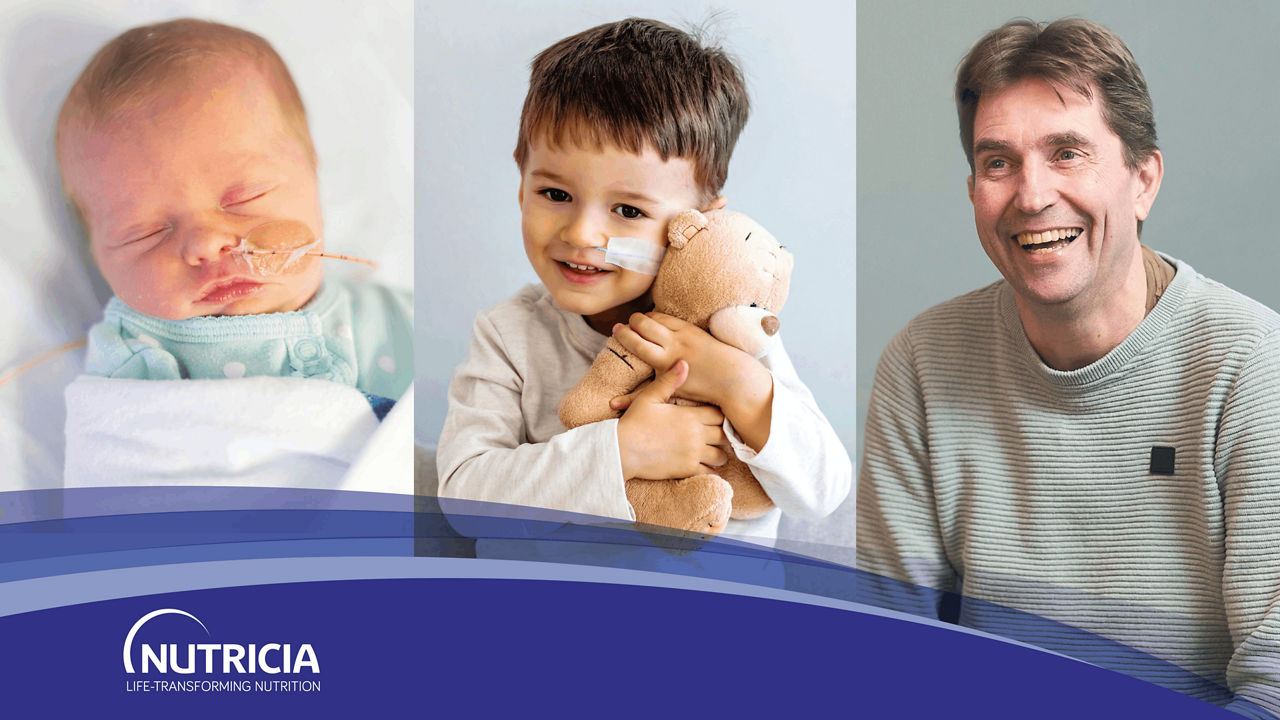Welcome to the healthcare professional page on nutritional management in critical illness. These pages contain content dedicated to professional audiences, including feature articles, links to the latest clinical guidelines and product information.
Nutritional Management in Critical Illness
About medical nutrition
Advancements in ICU enable patients to return home more quickly, spending less time in the ICU and the hospital, while at the same time reducing hospital costs[1-3].
The role of nutrition in critical care
Intensive care units (ICU) today are treating older patients with more complications than ever before. However, their chances of survival and recovery have significantly improved in the past decade due to advances in medical science and technology.
New surgical techniques and improved anesthesia, as well as improved pre and post nursing care, optimal nutrition and early mobilization, has helped to reduce the impact of ICU on patients.
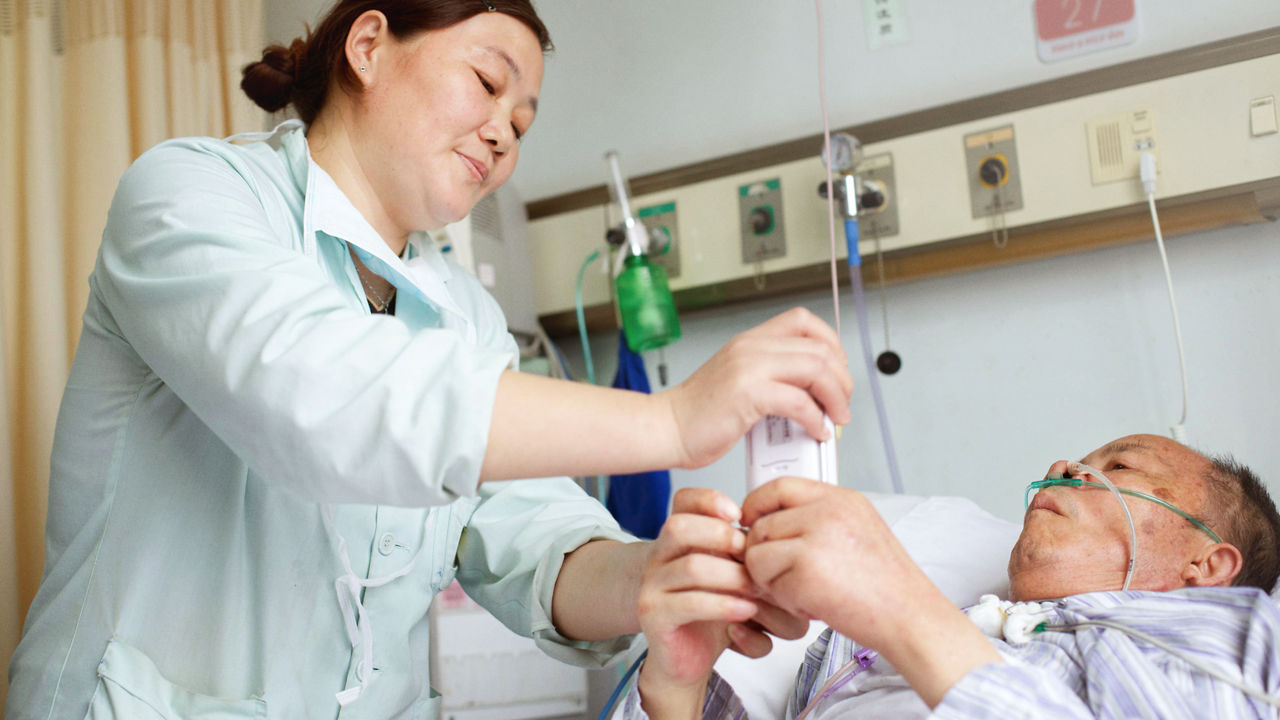
These advancements in healthcare enable patients to return home more quickly, spending less time in the ICU and the hospital, while at the same time reducing hospital costs1-3. Patients are now able to recover earlier enabling them to return to their normal lives more speedily.
There has been a great deal of scientific progress in the field of medical nutrition, and now there is a better understanding of optimal feeding in the critical care setting4-9. Both clinical nutrition guidelines and ICU experts have recognized the need for a new, individualized approach to nutritional care10-14.
Critical care nutrition portfolio
There are health challenges patients recovering from critical illness may experience, which can be managed or improved with medical nutrition (for use under healthcare professional supervision only). The Nutricia products shown from this point onwards are foods for special medical purposes and intended for the nutritional management of critical illness recovery.
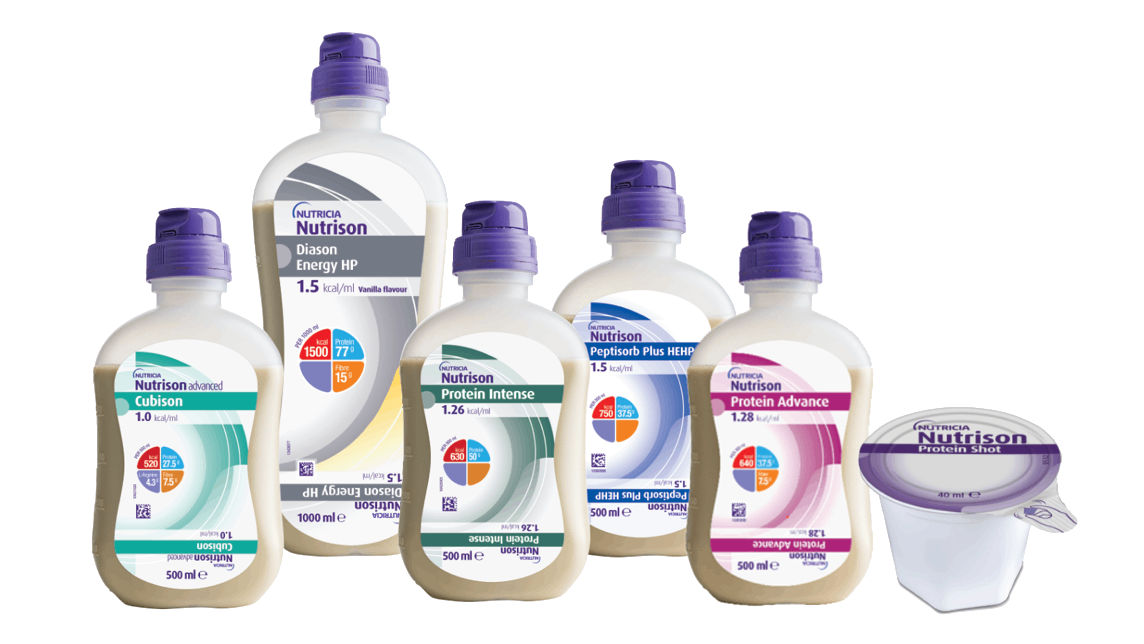
Critical care products
The Nutricia critical care products should be used under medical supervision.
Clinical guidelines
Congresses
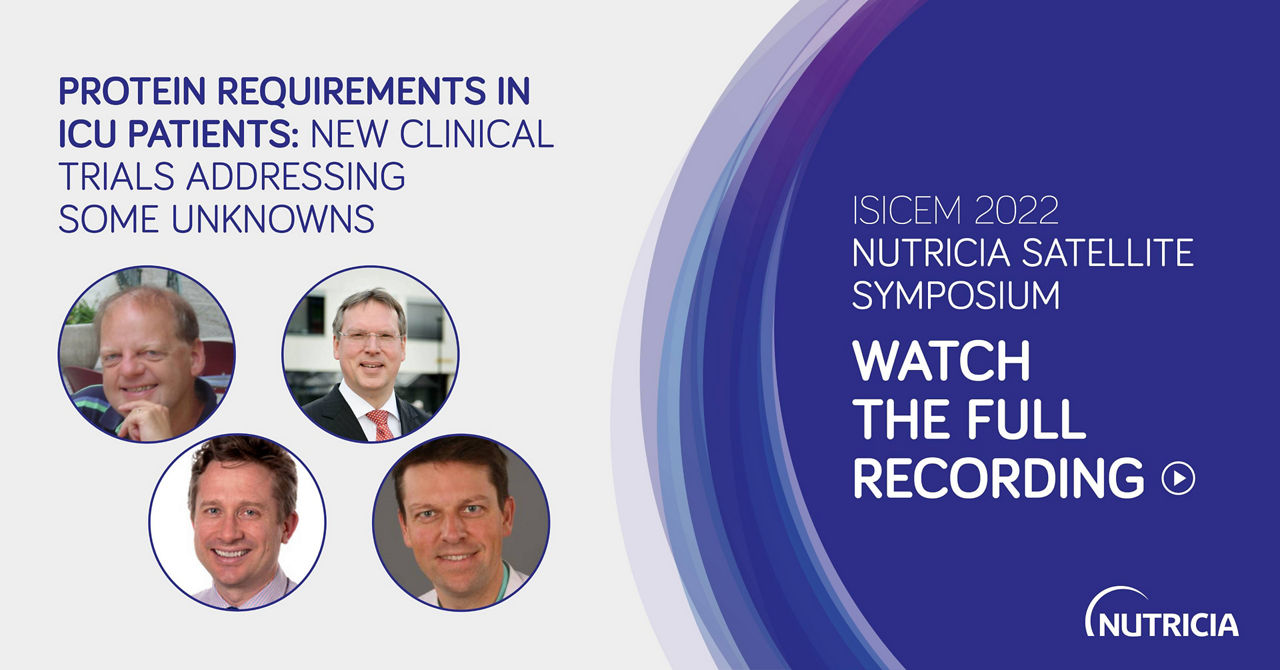
Join part of ISICEM 2022
Studies consistently show that on average, over the last decade, most ICU patients only receive between 0.6-0.8g/kg protein per day in ICU15-17. The ESPEN guideline recommendation is 1.3g/kg/day18 based on existing research. To find out about new cutting edge clinical trials exploring both clinical and functional benefits of recommended protein provision in ICU, watch the recording of the Nutricia Satellite Symposium at the 41st ISICEM (International Society of Intensive Care and Emergency Medicine).

Nutricia’s presence at ESPEN 2022
If you missed the Nutricia Satellite Symposium at ESPEN, don’t miss the opportunity to watch top experts outline the value of muscle as the effective target organ for nutritional intervention in cancer, stroke and frailty. In addition, no less than 8 expert educational sessions were held covering diverse topics on nutritional care in the areas of intensive care medicine, oncology, protein quality and enteral feeding. Get access to the recordings now.
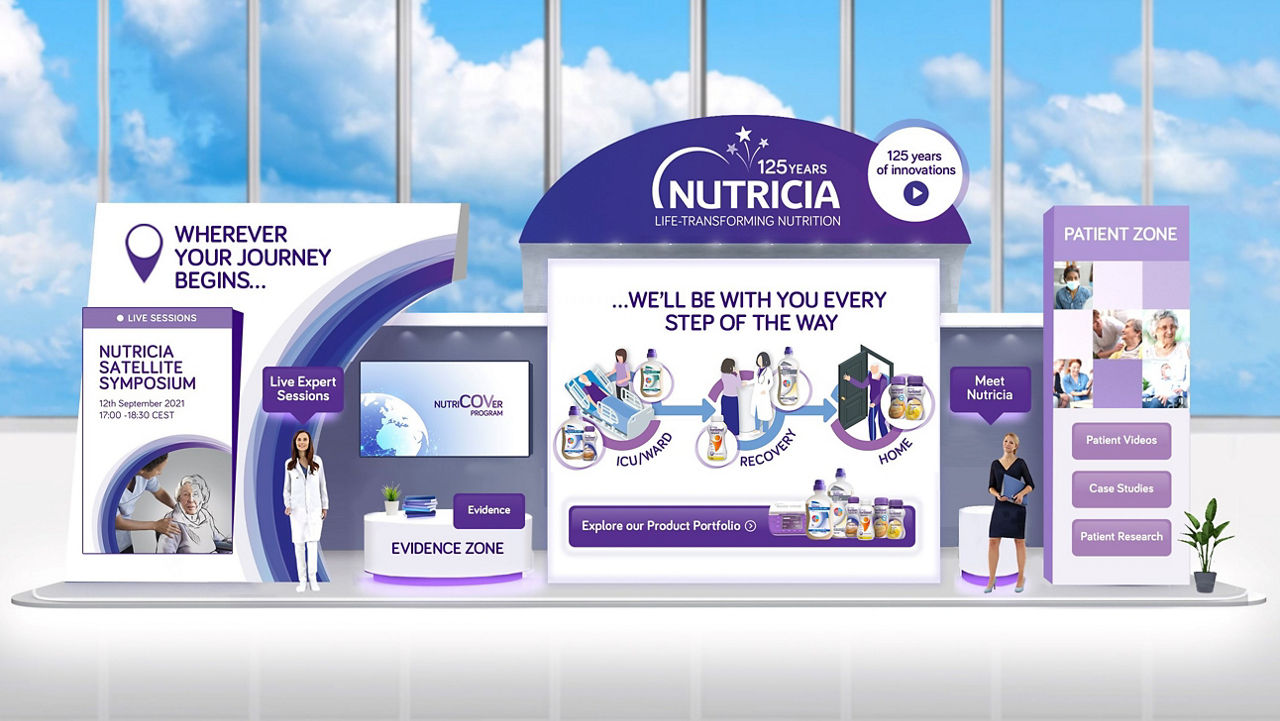
ESPEN 2021 experts' insights
During the virtual 2021 ESPEN congress on Clinical Nutrition & Metabolism, Nutricia hold live experts sessions on the booth. Six international experts and dieticians shared key insights on the optimal nutritional care along the patient journey from the Intensive Care Unit to the community.
Watch the recorded experts’ sessions of by clicking on button below.
Nutricia Education
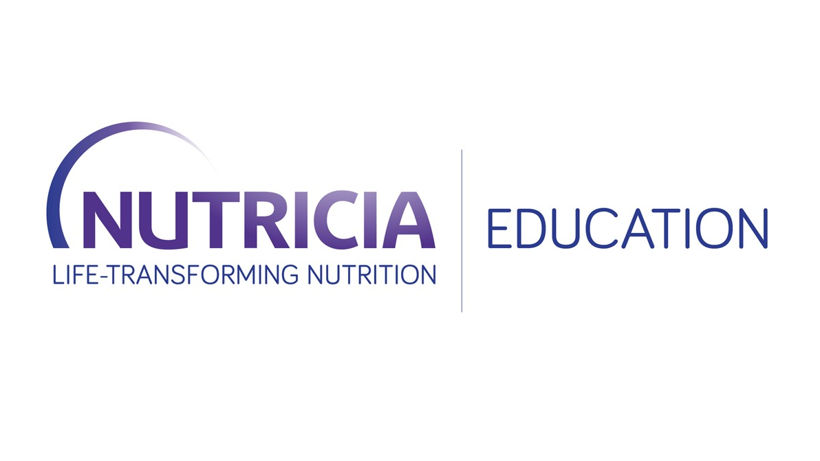
Continued learning enables us all to deliver the best possible care to those who need it most. Here we bring science-led educational resources as well as news from leading medical congresses, helping to stay up-to-date with the latest advances in medical nutrition.
Patient story
Lydia’s story
“When COVID-19 broke out, I felt that it was my duty as a Healthcare Assistant in a nursing home to care for others. But it wasn’t long before I became infected myself. When I awoke from a nine day coma, my muscles were weak and wasted. Pretty quickly, the doctor prescribed me medical nutrition, that’s rich in proteins, which is a very important component when you’re bed ridden.”
Feature articles

Recovery focused nutrional therapy across the continuum of care
A group of experts published a review paper emphasizing how healthcare professionals could take the learnings of the Covid-19 pandemic and apply more broadly by using an assertive, multi-modal nutrition support approach. Get access to the publication as well as a feeding decision tree to support patients.

Protein in critical illness
Loss of muscle mass and malnutrition is common among critically ill patients19. Protein is the most important macronutrient contributing to the conservation of lean body mass, and positively impacting both mortality and mobility20, 21.

#Time4Education
#Time4Education is a self-paced learning video series to discover enteral tube feeding solutions. The series are based on 2 tutorial videos, one on medical devices and one the importance of intact protein feeds, followed by testimonials from different experts.

Enteral feeding and medical devices healthcare professional pages
The healthcare professionals pages provide access to a range of articles and resources related to enteral feeding and medical devices, including clinical guidelines and detailed product information. The pages are for healthcare professionals only.
News
Nutricia joins nutrition experts at ESPEN in challenging the status quo to enhance patient recovery
Nutricia Expert Debate @ ISICEM - learnings from the pandemic for nutritional care
- Anderson AD et al. 2003
- Gustafsson UO et al. 2012
- Yeh et al. 2015
- Allingstrup MJ, et al. Clinical Nutrition. 2012;31:462-8
- Doig GS et al. 2009
- Casaer MP et al. 2011
- Van Zanten AR et al. 2014
- Weijs et al. 2014
- Allingstrup M J et al. 2012
- Elke G et al. 2014
- McClave S et al. 2009
- Dhaliwal R et al. 2014
- Martindale RG 2015
- Evans DC et al. 2015
- Elke G et al. Crit Care. 2014; 18(1): R29
- Murthy et al. Crit Care Resusc, 2021
- Alberda C et al. Intensive Care Med. 2009; 35:1728–1737
- Singer et al. Clin Nutr. 2019;38(1):48-79
- Preiser JC. et al. 2015.
- Heyland DK, Weijs PJM, Coss-Bu JA, et al. Nutrition in Clinical Practice. 2017;32:58S-71S.
- McClave SA, Taylor BE, Martindale RG, et al. Journal of Parenteral and Enteral Nutrition. 2016;40:159-211.
Are you a healthcare professional or (carer of) a diagnosed patient?
The product information for this area of specialization is intended for healthcare professionals or (carers of) diagnosed patients only, as these products are for use under healthcare professional supervision.
Please click ‘Yes’ if you are a healthcare professional or (carer of) a diagnosed patient, or ‘No’ to be taken to a full list of our products.
The information on this page is intended for healthcare professionals only.
If you aren't a healthcare professional, you can visit the page with general information, by clicking 'I'm not a healthcare professional' below.
